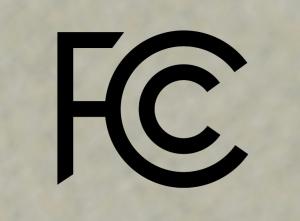Court Upholds FCC's Decision to Go with New Vendor

A federal appellate court has denied a complaint challenging the Federal Communications Commission's (FCC's) award of a contract to a foreign-owned company, finding that the FCC's decision had been within its discretion and was supported by the record. The case touched on management of the nation's telephone numbering system, specifically the ability of a person to retain the same telephone number when changing carriers. Responsibility for overseeing the transport of such numbers has long been vested in a local number portability administrator (LNPA) designated by the FCC pursuant to multiyear contracts.
The need for an LNPA was outlined in the Telecommunications Act of 1996, with federal lawmakers noting therein the propriety of having an independent outside party in charge of assuring that the law's number portability requirement is met. The first LNPA contract was given to Lockheed Martin.
But in 1999, the FCC determined that Lockheed Martin could no longer satisfy the "neutrality" criteria set forth for an LNPA, given the reach of Lockheed Martin's manufacturing operations and its other governmental contracts. The company thereupon established Neustar, Inc. as a standalone affiliate, and the FCC agreed that the LNPA contract could be transferred to Neustar, which retained its position as LNPA until 2015, when the FCC opted to go with a different vendor.
The FCC's change in direction was the result of a petition filed with the agency in 2009 urging it to initiate a competitive bidding process for the LNPA contract. The petition had been submitted by Telcordia, a wholly owned subsidiary of Sweden-based Ericsson. After weighing the two bids received in its first competitive solicitation, which came from Neustar and Telcordia, the FCC chose in early 2015 to go with Telcordia as the LNPA.
In doing so, the FCC dismissed Neustar's arguments that Telcordia could not meet the "neutrality" standard required for LNPAs inasmuch as its sole stockholder, Ericsson, is both a manufacturer of telecommunications equipment and a telecom service provider. At the same time, however, the FCC conceded that certain safeguards should be put in place.
The commission stated that although Telcordia's ties to Ericsson did not, by themselves, disqualify the contractor from serving as the LNPA, the possibility of influence from the parent company warranted conditions being attached to the award of the contract. Among the terms so added were a requirement for a majority independent board of directors for Telcordia, submission of the company at least biannually to a "neutrality audit," and development of a strict code of conduct addressing intercorporate relations.
In appealing the FCC's conferral of the LNPA contract on Telcordia, Neustar contended that the safeguards and restrictions placed on Telcordia did not go far enough. In particular, Neustar alleged that regardless of the presence of "independent" members of the Telcordia board, the contractor's articles of incorporation require its board to make decisions that are consistent with and in the best interests of its sole shareholder, Ericsson.
Thus, Neustar asserted, no matter what ring-fencing measures might be adopted, Telcordia would always be managing the LNPA contract in a manner that most benefits its parent company, not consumers. Neustar also presented a procedural argument, maintaining that the FCC had erred in not providing for notice and comment prior to its selection of the winning bidder.
Addressing the procedural issue first, the U.S. Court of Appeals for the District of Columbia Circuit found that the FCC's evaluation of bids received under a competitive bidding regime was not subject to any notice and comment requirement. The court averred that the bid selection process is nothing like a rulemaking docket.
That is, it expounded, whereas rulemakings involve consideration of "broad applications of more general principles," a competitive bidding solicitation centers on more "casespecific individual determinations." In the court's opinion, it clearly is necessary to obtain input from all interested parties and stakeholders in a rulemaking setting because of the broad policy matters that are at the heart of the proceeding. By contrast, though, a review of individual bids does not spark the need for the same level of participation. As to Neustar's claims about divided loyalties for members of Telcordia's board of directors, the court stated that Neustar had raised some legitimate concerns. And the court acknowledged that such concerns could have been cited by the FCC as grounds for awarding the LNPA contract to Neustar rather than Telcordia.
Nevertheless, the court said it was not convinced that the mere possibility of divided loyalties was a sufficient reason for denying the contract to Telcordia. Moreover, because the FCC had taken proactive steps in attaching conditions to the contract to help avoid just such an outcome, the court concluded that the FCC had not acted unreasonably or arbitrarily and capriciously when it denominated Telcordia as the new LNPA.
The court related that its own review of the record in the matter revealed that the FCC had fully and carefully analyzed all elements of the two bids. The court stated that the FCC had properly taken into account Neustar's years of experience in overseeing the LNPA contract. But, the court said, the FCC had supported its ultimate decision to change to Telcordia by pointing out that, despite Neustar's past experience, Telcordia had demonstrated superior technical and managerial capabilities for administering the number portability program going forward. Neustar, Inc. v. Federal Communications Commission, Nos. 15-1080, 16-1293, May 26, 2017 (D.C.Cir.).



